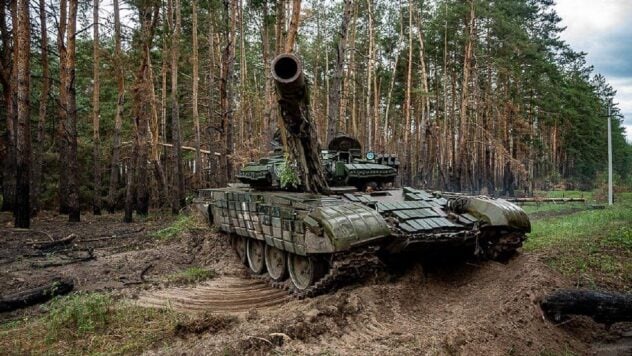
Russia is unlikely to make significant territorial gains in Ukraine in the coming months as its poorly trained troops try to break through Ukrainian defenses, which are now being additionally protected by strikes with Western munitions.
This is reported by the American newspaper The New York Times, citing unnamed American officials.
RF is unlikely to achieve success at the front in the near future
The NYT recalls that in the spring and early summer, Russian troops tried to seize Ukrainian territories in the north of the Kharkov region and resume the offensive in eastern Ukraine to take advantage of the capture of Avdiivka. During this time, Russia suffered thousands of losses during this operation, without gaining practically any new territories.
Now watching
— Russia's problems represent a significant change in the dynamics of the war, which have been tilting in Moscow's favor in recent months. Russian troops continue to inflict pain, but their gradual advance is slowed by the strengthening of the Ukrainian position. The coming months will not be easy for Ukraine. But allied leaders gathered in Washington this week to mark the 75th anniversary of the founding of the North Atlantic Treaty Organization can rightly argue that their efforts to strengthen Ukraine are bearing fruit, — writes the newspaper.
At the same time, the publication points out that Ukrainian troops are stretched along the front line, and the Defense Forces face difficult months of fighting ahead. But a major Russian breakthrough is now unlikely, says Michael Kofman, a senior fellow in the Russia and Eurasia Program at the Carnegie Endowment, who was recently in Ukraine.
Leaders at the NATO summit are expected to promise new funding to Ukraine, announce the alliance's plans to coordinate arms supplies and reinforce a pledge to Kyiv that it will eventually become a full ally.
— It was this last point that became the main thing in the war, more important than the return of territory. While Ukrainian officials insist they are fighting to reclaim their land, a growing number of U.S. officials believe the war is primarily about Ukraine's future in NATO and the European Union, — writes NYT, without providing arguments in favor of this thesis.
In addition, looming over the NATO summit are concerns about Russia's acquisition of weapons — in particular, missiles, drones and components for their creation — from Iran, North Korea and China. Already now, in the third year of a devastating full-scale war, there are real concerns about Ukraine's ability to maintain its infrastructure, including its power grid, in the face of long-range Russian attacks. But the biggest danger may be US policy towards Ukraine after the presidential elections this fall.
As the publication notes, today Ukraine is focused on strengthening its defenses and striking deep behind Russian lines.
Aspiration to the EU and NATO
The publication recalls that last month the European Union agreed to begin membership negotiations with Ukraine, which is an important step in the long process of accession to the EU.
While NATO is not yet ready to invite Ukraine to join the Alliance, the bloc's leaders this week are expected to approve language that practically promises Kyiv that it will become part of the North Atlantic Treaty Organization.
— Purpose of the statement — avoid a repeat of what happened at last year's summit in Vilnius, Lithuania, where leaders said “Ukraine's future — this is NATO”, but they did not accompany this with a specific invitation. Diplomats called the confusing language a “word salad”, and Ukrainian President Vladimir Zelensky angrily complained about the lack of a time frame for accession, — writes NYT.
At the same time, the possibility of Ukraine joining NATO seemed far away before the Russian invasion in 2022. The Allies did not want to provoke Russia and take on seemingly enormous security obligations. Since then, Ukraine's partnership with the United States, Britain and other European countries has strengthened, and the West has poured billions of dollars into training and equipping the Ukrainian army, the newspaper continues.
According to unnamed American officials, Ukraine will continue to move closer to NATO and the European Union even if it does not recapture its lands from Russia. This, as the publication continues, can also be a “victory” for official Kyiv.
US Election Factor
However, as the newspaper continues, the forecasts of American officials “will be undermined if US policy towards Ukraine and Russia changes”.
Under President Joe Biden's administration, the United States provided military advice, real-time intelligence, and billions of dollars in weapons.
However, former US President Donald Trump promised that if elected, he would begin peace negotiations between Russia and Ukraine. Although he did not specify the terms of peace he would seek, rapid negotiations would likely force Ukraine to cede vast territories and abandon its ambitions to join NATO.
But US officials say demanding negotiations begin now would be a mistake. About $61 billion in aid, approved by Congress in May after months of wrangling, is aimed at strengthening Ukrainian defenses and stopping Russian territorial advances.
Throughout the war, American intelligence agencies have been far more pessimistic about its prospects than the Pentagon, whose senior officers work closely with the Ukrainian military to help them develop strategy. But now assessments across the U.S. government seem more consistent when it comes to Russia's prospects on the battlefield.
The situation at the front also depends on the supply of electronic components to the Russian Federation from China, UAVs from Iran, as well as missiles and artillery from North Korea. This gives Russia “enough weapons to supply its army”, writes NYT. However, the newspaper continues, the Kremlin does not have enough personnel for a significant breakthrough at the front.

